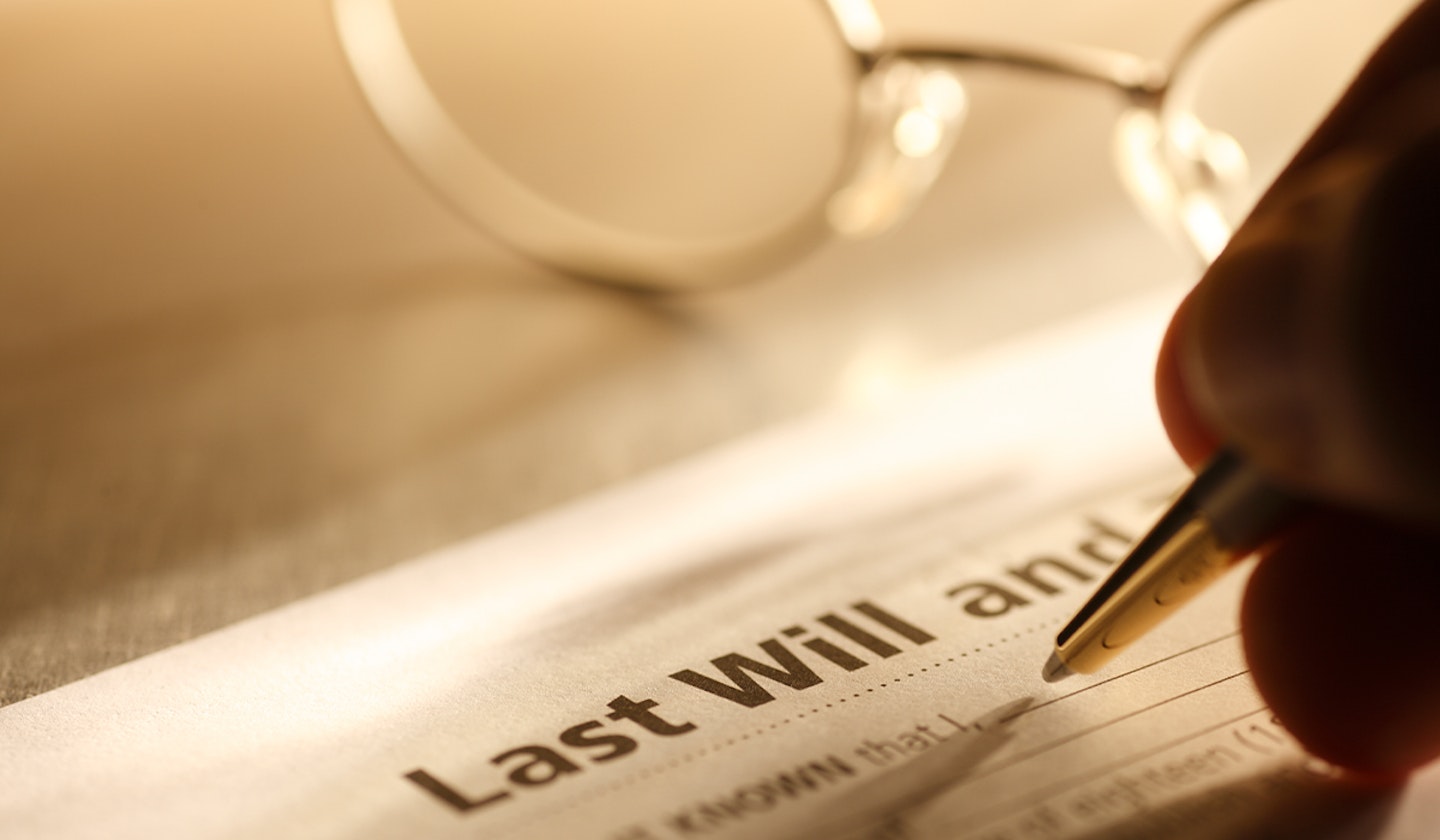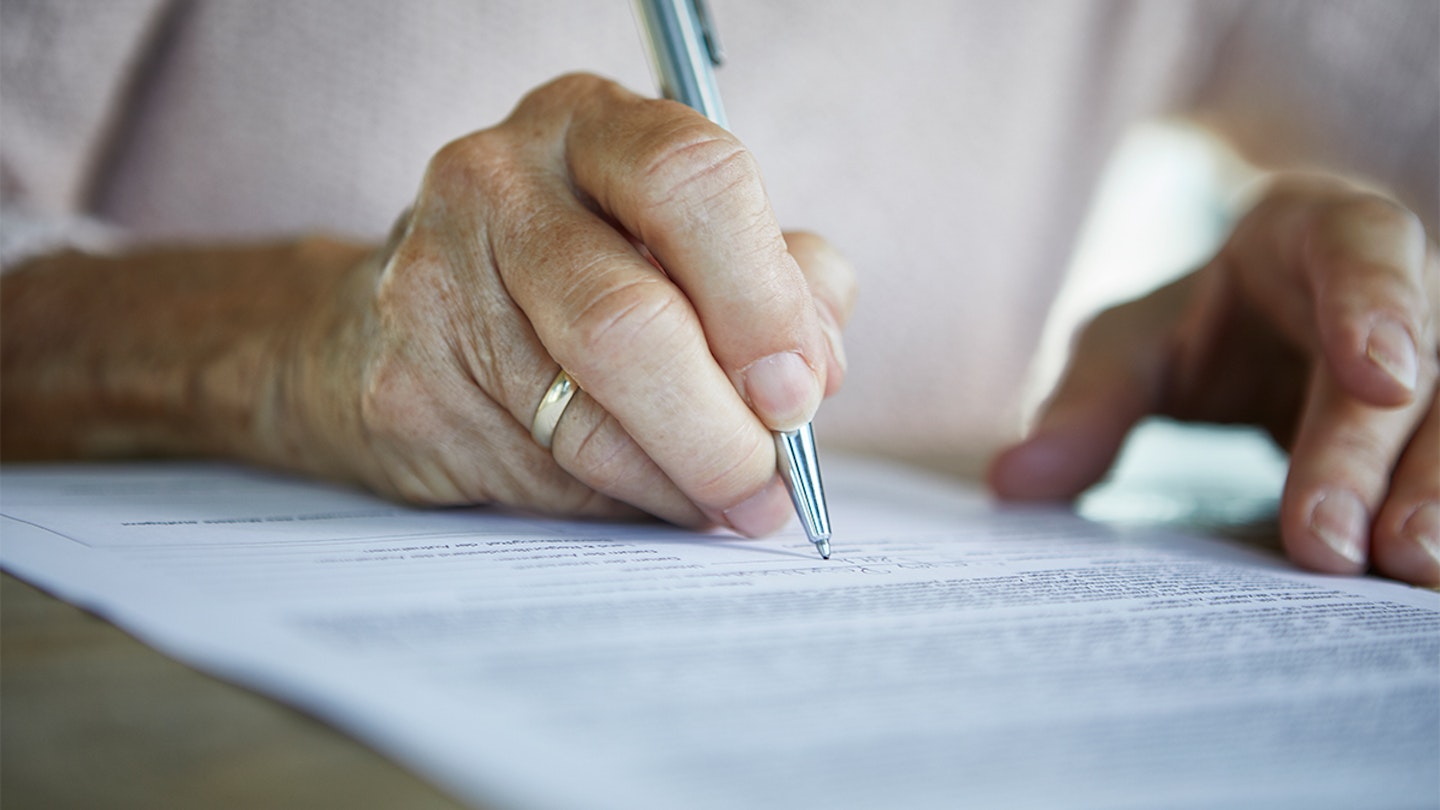It's very important to write a will as it's the only way to make sure your estate (that's your money, property, investments and possessions) go to the people you care about most.
You can write your will yourself, but it's a good idea to get some advice on how to make a will. To get started on writing your will, we've put the important steps to follow below.
Value your estate
Firstly, it's important to write a list of your assets. This includes your home and the property you own, savings in the bank and building society, premium bonds, life insurance, pension funds, investments, cars, personal belongings and household contents.
You'll also want to make a list of your debts too. This includes your mortgage, credit card balance, any overdrafts, loans and equity release.
It's important to get your assets valued on a regular basis as the value can change overtime.
Decide how you want to divide your estate
It's important to make absolutely clear what you want to happen to your estate. Consider who you want to benefit from your will, whether there's anything you want to give to specific people, what you want to happen if any of your beneficiaries should die before you.
You may also want to leave a donation to charity in your will. Be sure to include the full name of the charity, their address and registered charity number. Any incorrect information might mean your chosen charity doesn't receive their donation.
Choose your executors
Executors of your will are the people who are responsible for distributing your estate after you have died. This holds a lot of responsibility so make sure you carefully consider who will be the executors.
Writing your will
There are a number of ways you can write your will, so be sure to weigh up all of your options and choose the right way for you.
Lawyers
It's a good idea to get some professional advice from a lawyer before writing your own will. There are lawyers, solicitors and chartered legal executives who specialise in wills. Before getting the help of a professional, you should check the Solicitors Regulation Authority or Law Society to make sure they're licensed.
If you're hiring a professional will writer, you should check they're registered with the Institute of Professional Willwriters.
Charities
Some charities offer a free will writing service, to encourage more people to donate to charities in their will - although there is no obligation for this. If you have a particular charity in mind, check if they provide a will writing service.
Banks
Some banks offer will writing services and advice on making a will. Get in touch with your bank to see what services they provide, just keep in mind that banks can often charge a lot for this service.
Make your own will
Don't forget you can make your own will, just remember that it is a legal document, so it needs to be written and signed correctly, meaning it's a good idea to seek some advice before writing.
Whichever way you decide to write your will, you'll need to sign it in the presence of an independent witness for it to be valid.
Once your will is written and signed, make sure it's stored in a safe place, either with your solicitor, bank or at home in a secure place.
How to make sure your will is valid

For your will to be valid, it must be in writing, signed by you, and witnessed by two people who must also sign it in your presence. Any beneficiaries of the will or their partners, or the executor of the will shouldn't act as witness or they may lose their right to any inheritance.
If the signing of the will and the presence of all three parties is not possible because of the coronavirus pandemic, you are able to witness the signing of the will through a window, an open door, from a corridor or adjacent room into a room with the door open, outdoors socially distanced or over video call.
When making and signing the will, you must have the mental capacity to make it and understand the effect it will have. You must have made your will voluntarily and without the pressure from anyone else.
If you have an earlier will, you should destroy it and state that this will revoke all others.
What if I have an illness that affects my mental capacity?
If you're unable to physically sign your will, it can be signed on your behalf in your presence.
You must however have the mental capacity to sign your will and any will signed on your behalf must contain a clause saying you understood the contents of the will before it was signed.
If you have a diagnosis of dementia, you can still make a will, but you may need a medical practitioner’s statement at the time the will is signed, certifying that you understand what you are signing.
How do I update my will
Any life changes, such as moving house or the arrival of a new grandchild will mean your will needs amending. Any minor changes can be added in a codicil and must be signed and witnessed in the same way as your will.
If anything substantial needs changing, you should create a new will and cancel your old one.
If you marry or remarry, your existing will will be cancelled. If you get a divorce, your ex-partner will be excluded from your will. It's a good idea to make a new will if you marry or divorce.
What if I don't make a will?
When you pass without making a will, it's called 'intestate' and it means your estate will unlikely go to the people you want.
If you have a spouse and children, your spouse will inherit all of your personal possessions and at least the first £250,000 of your estate, plus half the rest. Your children will then be entitled to the other half of the balance.
If you have a spouse but don’t have any children your spouse will inherit your whole estate.
If you and your partner aren’t married and you haven’t made a will, they won't inherit from your estate, even if you've lived together for a long time or have children together.
If you have children and your spouse or partner is deceased, your children will inherit everything, divided equally between them.
If you don’t have a partner or children then your relatives may inherit your estate.
